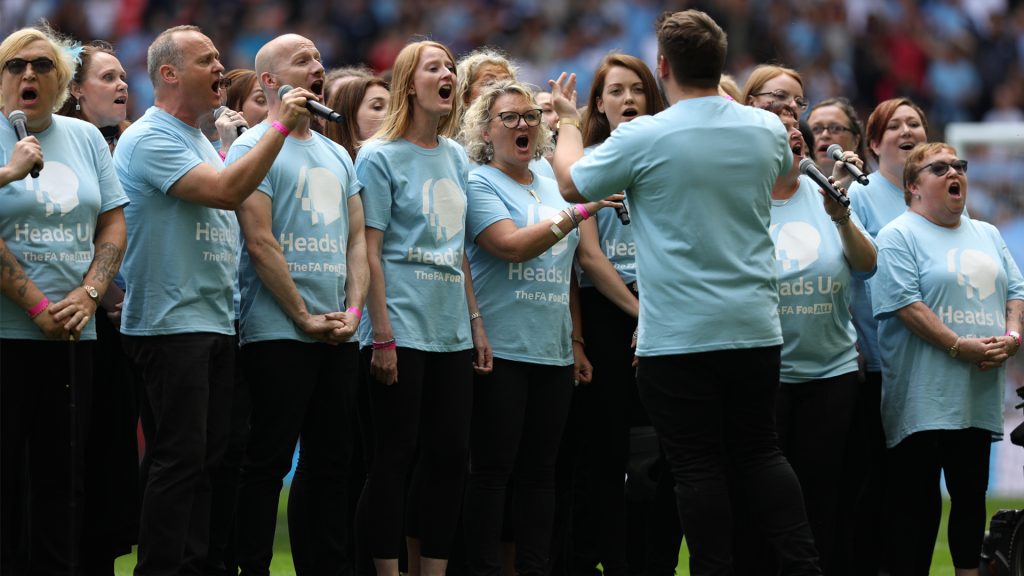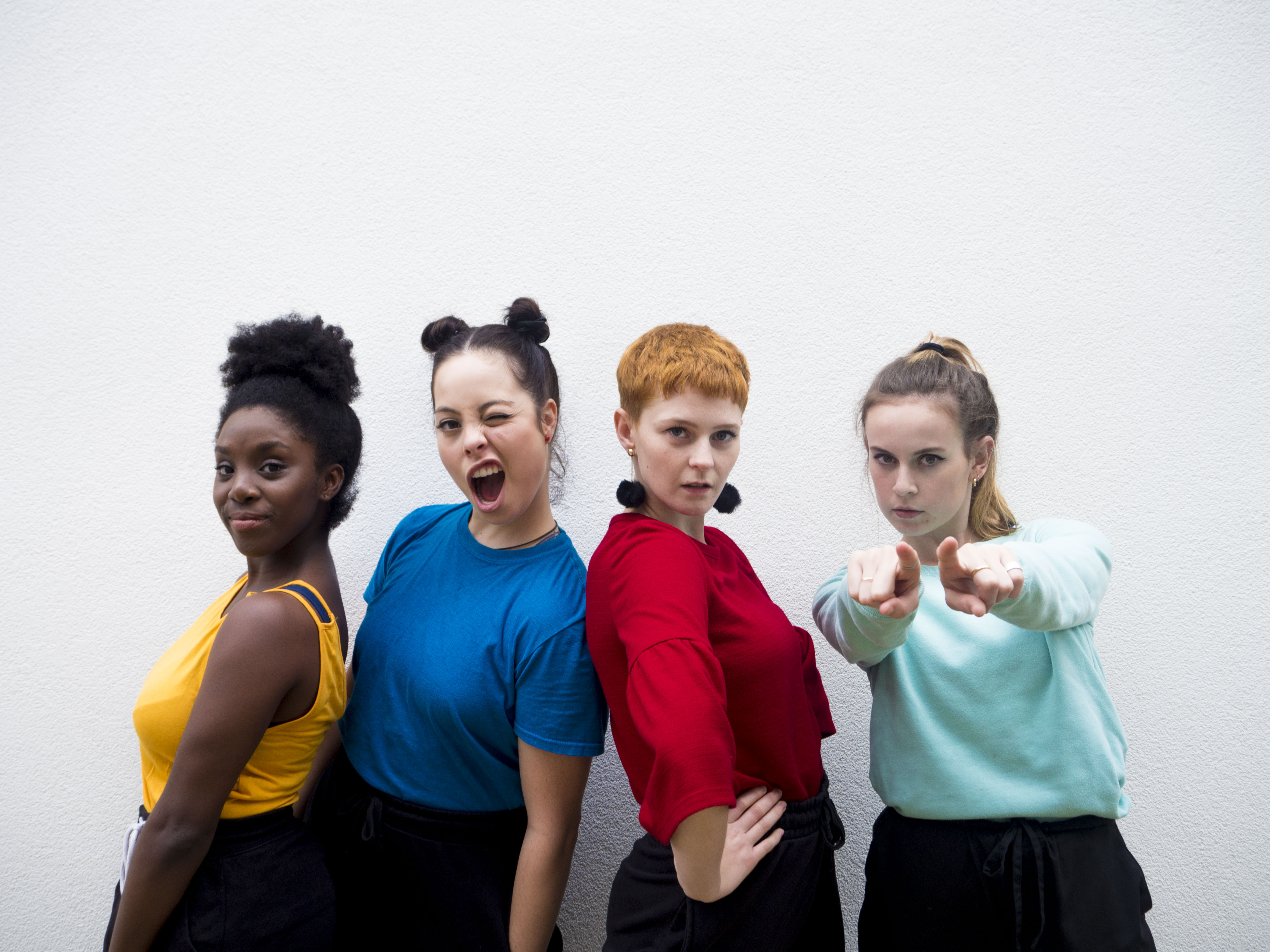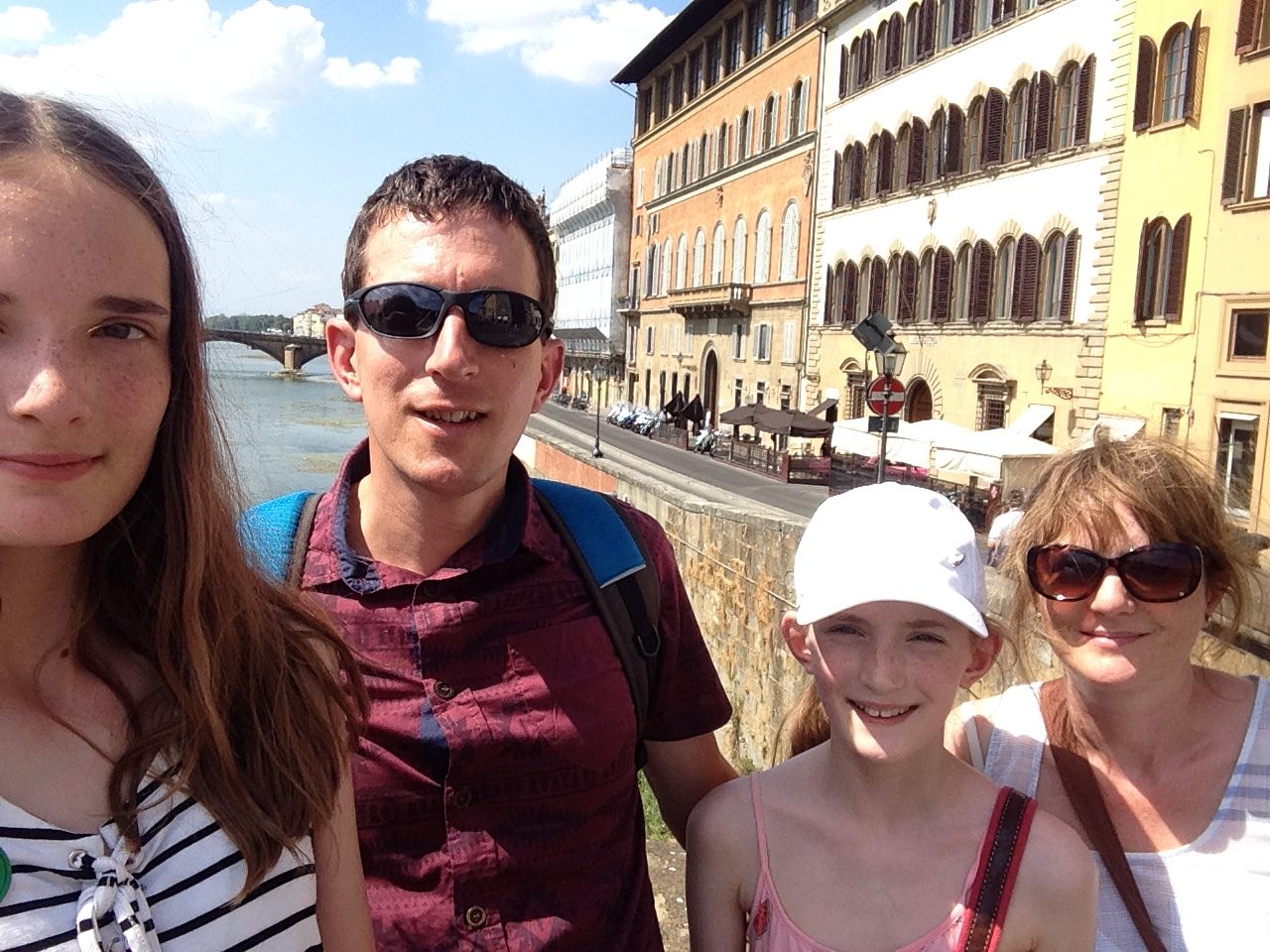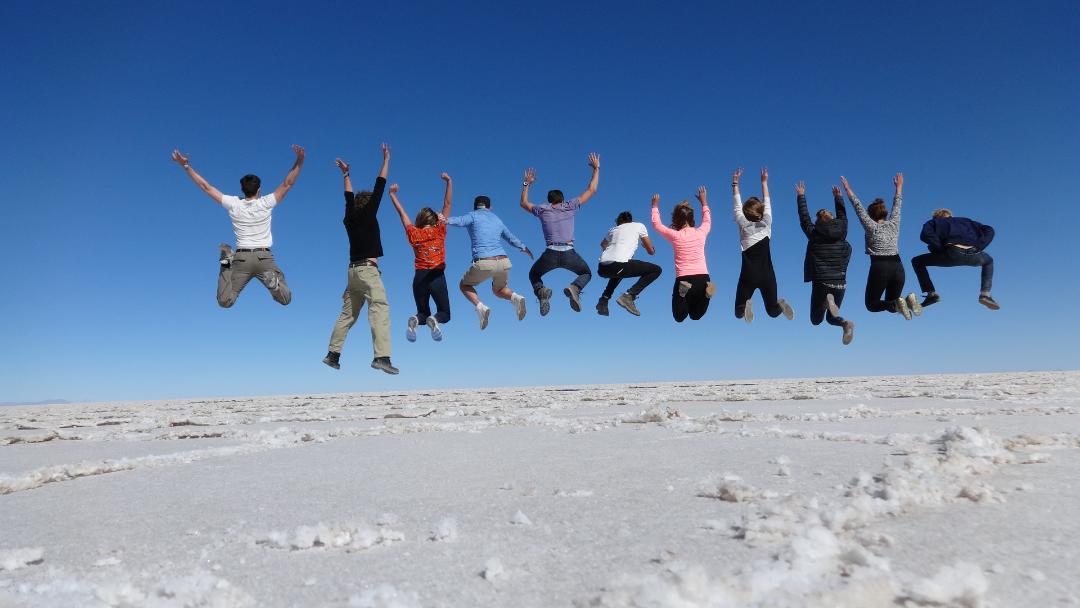Introduce yourself and the organisation you’re from.
Dan: I’m Dan, I’m the Musical Director from the choir and co-founder. I set up the choir last year with Triple C.
Ged: I’m Ged, from Triple C one of the founding members of the partnership.
Laney: I’m Laney, I’m a psychologist and I support the choir with any mental health issues they’re facing. I also do all the research behind why singing is good for your mental health.
Tell us a little about BeeVocal and your involvement
Dan: I run choirs as my full-time job and I’m very passionate about singing for wellbeing. We set up BeeVocal initially as a choir that supports anyone experiencing mental health issues. We wanted to create a safe space for anyone that was struggling to have a place to come and sing and be around people that understood how they felt. We have about 150 people involved and it’s all about building confidence and coming together as a group to sing.
Laney: The vision for BeeVocal has evolved from the beginning, it started from Dan’s motivations from noticing the effects singing has on your wellbeing. We wanted to measure scientifically whether it was just placebo or whether it was something that did impact people’s life. We measured people’s depression, anxiety and wellbeing scores over a course of 12 weeks and we found that depression and anxiety reduced significantly. We also saw that wellbeing scores soared through the roof and it showed us that this isn’t just a good idea, it’s healing people too. It wasn’t just people with depression and anxiety getting involved too, there were people experiencing bipolar and schizophrenia and we saw that choir participation was really helping them. It’s been an exciting journey.
Dan: It’s really special to be a part of. One of our choir members hadn’t left the house in seven years until she saw a report about BeeVocal and has since been a part of the choir. We’ve since heard so many independent stories on how being part of the choir has been a big part of people’s journeys in fighting any challenges to their mental health that they might have.
Laney: One of the biggest things we’ve found with the choir is how much it can break down stigma. People who were perhaps frightened to open up about how they were feeling for anticipated fear of rejection, when they’ve come to the choir they’ve not experienced that at all. They’ve been a lot more open with their stories and how they’re feeling and they just come as they are. Whether they’re having a good day or a bad day, they’re in a space where everyone cares and everyone belongs.
Dan: What I was really excited about when we first set up, is that you really struggle to get a lot of men singing. Also, not only to get men singing but getting them to be open about mental health. So being able to do both of those things is amazing and we’re really lucky to have that balance of men and women.
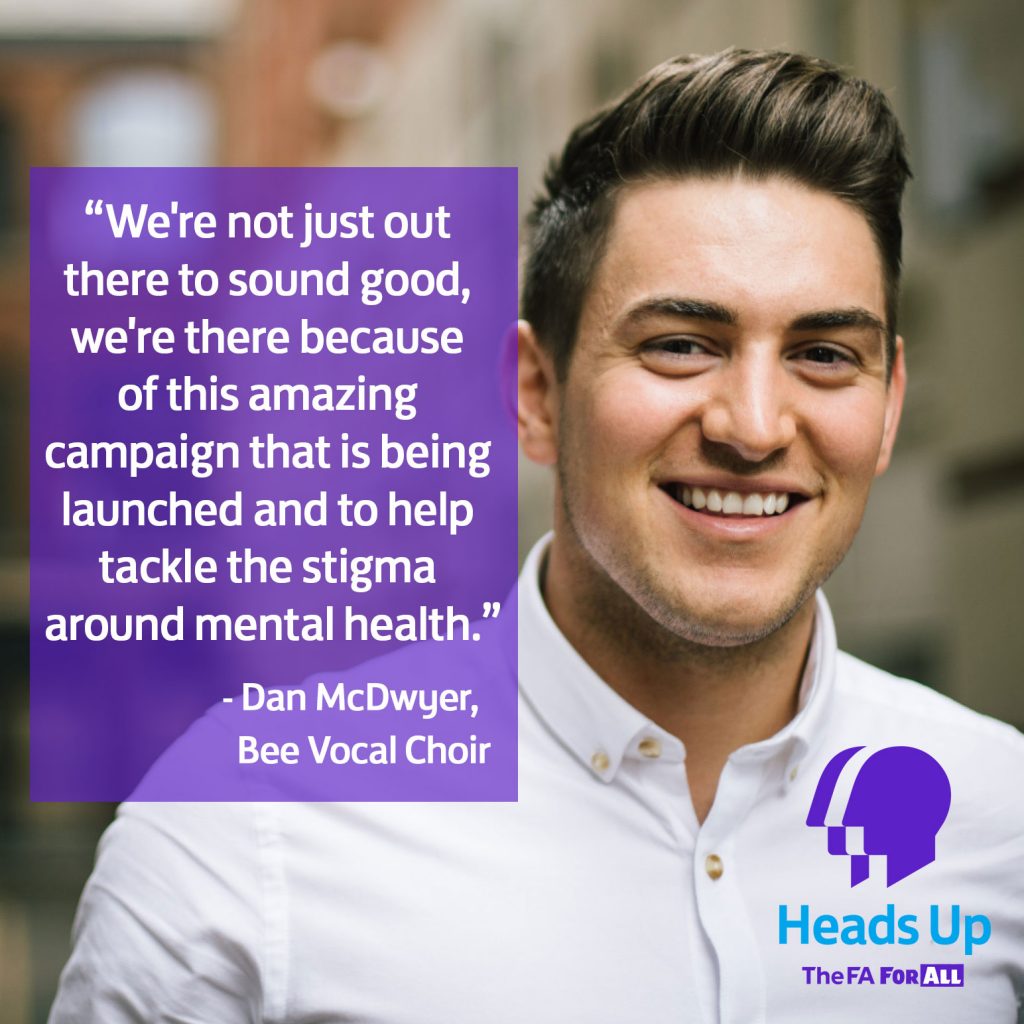
Dan, what is it that inspired you to set up BeeVocal?
I worked with the choir for the One Love concert that Ariana Grande put on after the Manchester attack and there were a lot of young people in that choir that were open about the issues they were facing with their mental health. I remember thinking how good that choir was for them when they came to sing, they were in their best place, it was their release. It made me realise what a powerful tool singing is and that’s where the conversations with Triple C started in setting up a choir specifically for people with mental health difficulties.
What is it about singing that creates a space where people feel able to open up?
Laney: I think it’s quite multi-faceted. Some of it is to do with how incredible Triple C are. They create events for people with physical and invisible disabilities and the way they create safety in the room is amazing.
Ged: We’re a collective making the arts more accessible to those with disabilities. We always have a team of support in the room for every choir session with BeeVocal, there are lots of volunteers that people can go and talk to if they ever need a moment and Laney is always on hand too. I think that support is vital for the choir because people do have things going on in their lives and sometimes that does overspill into the choir. So if they need support, they have that.
Laney: By creating that initial safe space, it means that when people walk in the barriers are already down. We know from the research that we’ve done that singing, even shower singing on your own can release endorphins. But singing in a group releases chemicals in your brain called oxytocin and that’s your ‘love hormone’ if you like. These hormones make you feel connected to people, they give you a sense of purpose and belonging in a group.
Dan: Even just the feeling of coming together as a group and being proud of something. With the choirs I run, I like for us to strive to be as good as we can be. So, we sing and have a great time, but there’s a sense of working together to achieve something special. We work with difficult harmonies where people have to work together as a team to make it sound amazing. There’s something really powerful about a choir, when there are 40 or 50 voices coming together, singing the same thing and being part of the same project. You can’t really beat that feeling.
Laney: Opportunities like singing at Wembley for the Heads Up campaign are really significant. They are bucket list opportunities for people. So for them, no matter what they’re facing individually, to be able to say despite all of that I have sung in front of thousands of people at Wembley The Royal Foundation and Heads Together is incredible.
Dan: I think there’s something really powerful about the choir standing out there, no matter what insecurities they have. We’re not just out there to sound good, we’re there because of this amazing campaign that is being launched and to help tackle the stigma around mental health.
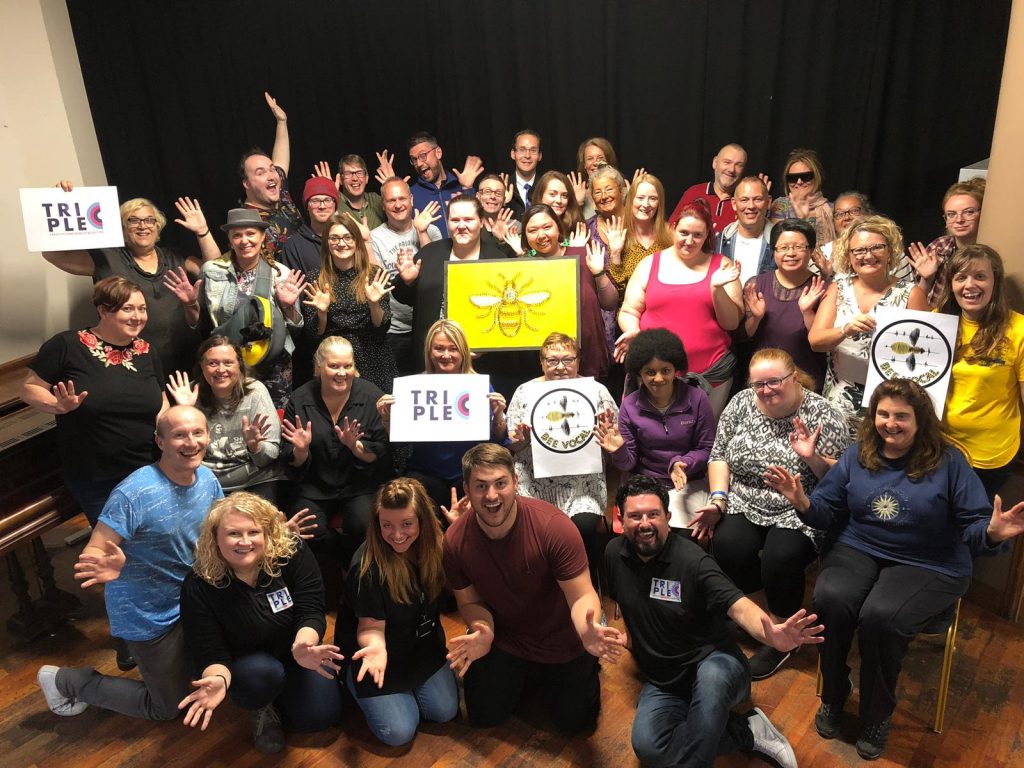
What difference have you seen BeeVocal make?
Laney: People have now opened up and are taking it their workplaces, becoming mental health champions and campaigning for mental health. We’ve seen whole companies change from the determination of our members. All of the ripples together do create this huge wave, so hopefully, we can show people that mental health is on a par with physical health. Hopefully, we get to play a small part in that issue that we’re all tackling together.
Talk to me about the song you’ll be singing at the Community Shield?
Dan: We’re singing for Manchester City so naturally, we will be singing Blue Moon, the anthem of the team. I remember singing Blue Moon when I was young, I come from a family of really big City fans and this will be top of their list of proud achievements. Football is seen as such a masculine, ‘lads’ sport but singing is such an important part of it too because that’s the way that fans show their passion for that club.
